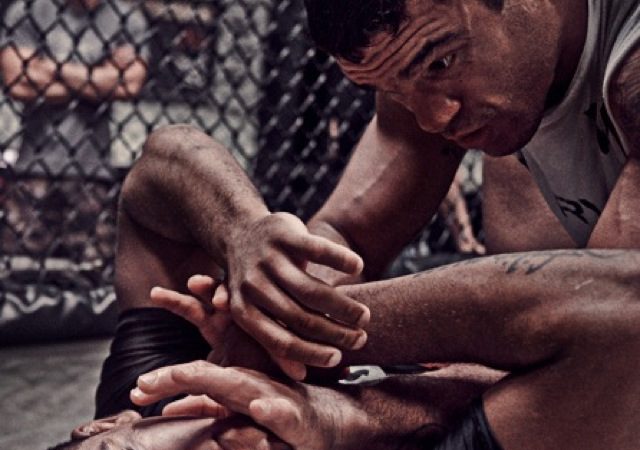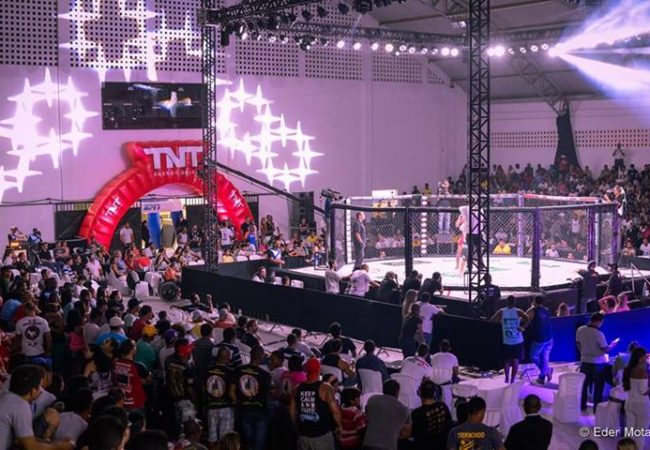
João Gabriel Rocha, absolute brown belt champion of the 2012 Worlds: constancy wins it for him with "certain ease". Photo by Dan Rod/GRACIEMAG
In the recent history of the Jiu-Jitsu World Championship, not too many winners of the brown belt absolute didn’t go on to become superstars of the sport.
In the galley of former brown belt kings, perhaps the sternest gateway to black belt, are Daniel Gracie (1996), Claudio Moreno (1997), Murilo Rupp (1998), Aurélio Fernandes (1999), Marcio Pé de Pano (2000), Alex Paes (2001), Roger Gracie (2002), Ronaldo Jacaré (2003), André Galvão (2004), Vinny Magalhães (2005), Antonio Braga Neto (2006), Otavio Sousa (2007), Rodolfo Vieira (2008), Léo Nogueira (2009), Marcus Bochecha (2010) and Alexander Trans (2011).
This year, the grand champion was superheavyweight João Gabriel Rocha, 20, of team Soul Fighters, who thanks to his experience at brown belt, took his divisional and open weight titles with certain ease, in the view of his BJJ professor, Leandro “Tatu” Escobar. The secret, to the teacher as well as the athlete, was his consistency in the academy and not letting sloth and excuses get in the way of his training.
“João has been doing Jiu-Jitsu since he was four years old and almost never missed a class. At Soul Fighter in Rio we hold competition-team training every day, and sometimes he trains twice on the same day, plus conditioning,” said Leandro. “His father always invested a lot in his career. João practiced judo at Flavio Canto’s Instituto Reação, did wrestling with the Brazilian national team, and he always trained more than the other kids his age.”
At the June World Championship in Long Beach, California, João took out two beasts in the finals: Felipe “Preguiça” Pena in the absolute and Luke Costello at weight, both from team Gracie Barra.
“The interesting part is that just gets more motivated with every trip to the top of the podium. His sights are always set on the top, and because of it he always wants to train more and more; he understands that his career hasn’t even begun. And he grows a lot at each competition. Every time I see him fight I feel he’s become a better and more mature competitor. It’s a process of evolution. When he gets to black belt he’ll do awesome at the top level. His strength is that he never tires—not because he’s young, but because he’s so dedicated. Just like at the Pan and the Brazilian Nationals, he did a good job of physical conditioning with Ítalo, which made him stand out all the more.”
Like any good teacher, Tatu can spot the chinks in his pupil’s armor. “His biggest defect is his lack of concentration. I have to always get on him about taking things seriously, paying attention to some of the details.”
Keen as he is to the crowd of superchampions at brown belt, would he say that winning a brown belt absolute at the Worlds is as or more difficult than scoring gold at black belt?
To Leandro Tatu, black belt is still up a level. “I don’t feel it’s the same level of difficulty, even though winning it is quite an achievement, mainly in the case of João, who has been a cut above the rest at brown belt for some time now. Just look at how the only matches he’s ever lost in this division were always dubious, in my opinion. In other words, he’s always been way ahead of most of the competitors. But now his time has come, and at the end of this year we’ll put him to the test, because he’s going to compete in Rio at the Copa Pódio Heavyweight Grand Prix—only black belt beasts, like Rodolfo, Bochecha and the rest,” said the teacher in closing.




